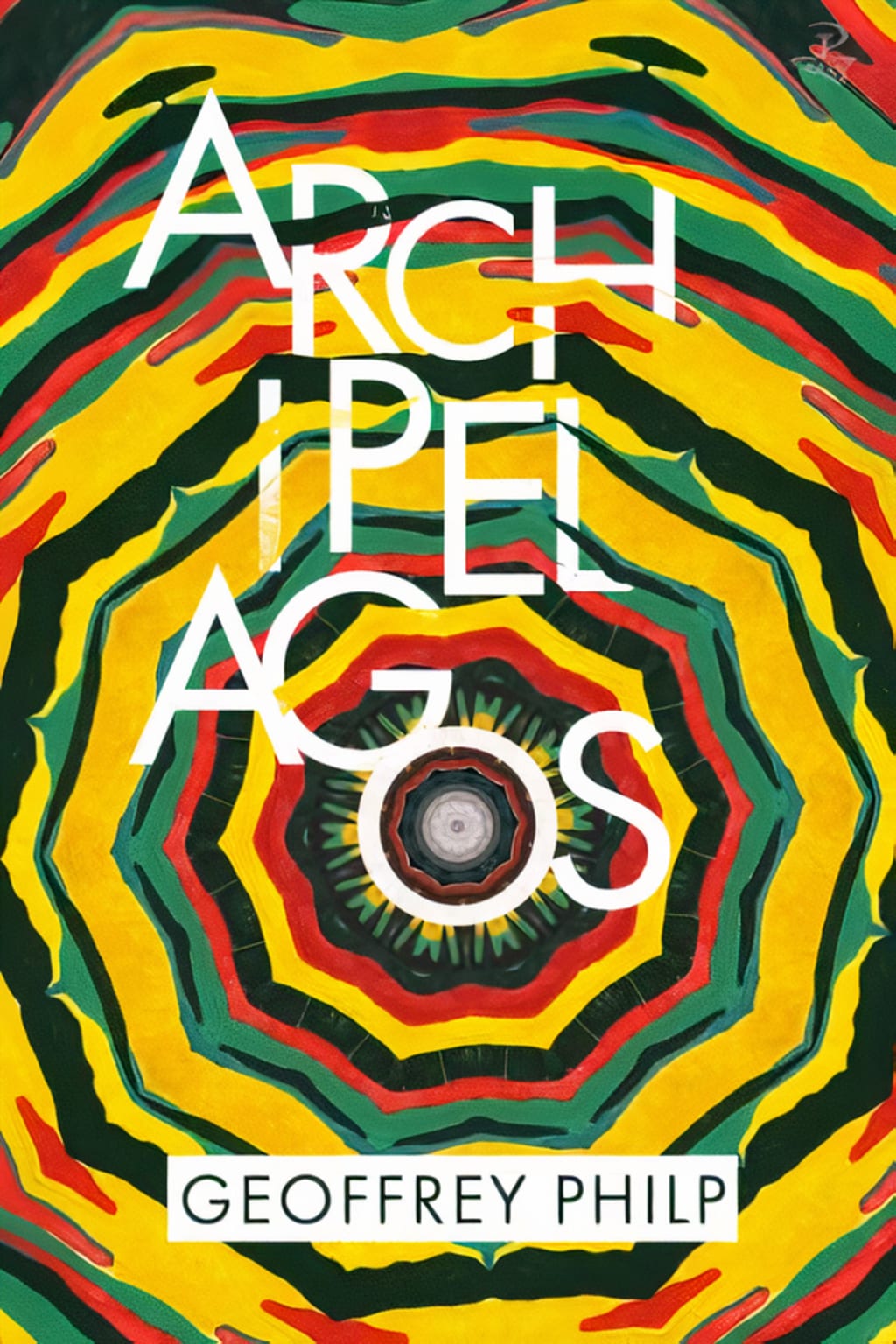From Baldwin to Marley
Exploring the Prophetic Tradition in "Archipelagos"

During the lockdown, when most of the poems in "Archipelagos" were written, I reread many of the books that shaped my life and work: Garvey's "The Philosophy and Opinions of Marcus Garvey," Cesaire's "Discourse on Colonialism," Fanon's "The Wretched of The Earth," Brathwaite's "The Arrivants," Walcott's "Collected Poems," and Baldwin's "The Fire Next Time." Revisiting these works, reading Amitav Ghosh's "The Nutmeg's Curse" and listening to Bob Marley influenced the poems in “Archipelagos.” "The Archangel's Trumpet," in particular, embodies the ideas of Brathwaite, Baldwin, and the songwriters who provided a subtext for the poems.
I believe it was Robert Frost who said, "The first line of the poem is a gift; the rest is work." When the phrase, 'There are no black angels in heaven," popped into my head, I immediately thought about the angel Gabriel, whose trumpet signifies the end of the world, the resurrection, and the final judgment of souls. The trumpet blast is believed to be a call to all people for the ultimate reckoning and the separation of the righteous from the wicked, which reminded me of Bob Marley's "Natural Mystic":
"This could be the first trumpet,
Might as well be the last,
Many more will have to suffer,
Many more will have to die,
Don't ask me why."
The opening lines of "The Archangel's Trumpet" also question the conventional depiction of angels and the omission of Black angels in traditional Western religious iconography:
If you followed the frescoes on the ceiling
of the Sistine Chapel, you’d believe
that there are no black angels in heaven.
However, the poem contemplates the possibility that our angels prefer to assist Yemaya*, the "Queen of Heaven," in protecting her children:
"And, maybe, they are right. Our seraphs
and cherubs would rather help Yemaya
to protect her children from the wolves
in this world than to spend eternity
pondering the mysteries of the Madonna’s
Assumption."
At the heart of the opening section is a division that has separated artists from Paul McCartney (“Let it Be”) to John Whitehead, Gene McFadden, and Victor Carstarphen in “ Wake Up Everybody": “The world won't get no better if we just let it be/ The world won't get no better we gotta change it yeah, just you and me." I'm on the side of Teddy Pendergrass and Bob Marley, who sang in “Get Up, Stand Up”:
Most people think
Great God will come from the sky
Take away everything
And make everybody feel high
But if you know what life is worth
You would look for yours on earth
And now you see the light
You stand up for your right
Jah!
These ideas align with Baldwin's perspective on the prophetic tradition within the Black church, which involves challenging social injustices, speaking truth to power, and seeking spiritual redemption. Baldwin aligns activism and the pursuit of justice with spiritual practice, emphasizing the interconnection of heaven and earth. And although Baldwin sometimes criticizes the Black church as a vehicle of oppression, he acknowledges its potential for a source of strength in the face of systemic racism in America, which the speaker renames the "land of Dis":
in the land of Dis: dishonor,
disrespect, disregard, desgraciada—where black
skin is despised like an incurable disease:
the darker the hue, the greater the sin,
and the only cure is a bullet or a noose.
The reference to "Dis" draws on Kamau Brathwaite's concept of the fragmentation of the Caribbean psyche caused by colonialism, emphasizing the need for a sense of home or "hounfor."
But in those moments when they put down
their mortal concerns: paying doctors’ bills
or worrying if their spouses and children
will make it home for dinner--
when they have grown tired of hiding
grimaces behind selfies and mug shots,
they unfurl wings that cover their backs,
scarred by the spite of downpressers.
This resonates with Peter Tosh's "Downpressor Man" and the photograph of "Whipped Peter**"
Yet, amidst these tribulations, as Marley expressed in "Them Belly Full," there is a call for celebration rather than mourning, recognizing that redemption is near.
"Cost of livin' get so high
Rich and poor, they start to cry
Now the weak must get strong
They say, 'Oh, what a tribulation!'"
The sufferer can anticipate the Archangel's trumpet, echoed in African American spirituals: "Blow your trumpet, Gabriel, Blow your trumpet louder; I want that trumpet to blow me home to my new Jerusalem."
The lockdown was a time of introspection and reflection. "Archipelagos," partly an homage to Garvey, Cesaire, Fanon, Du Bois, Brathwaite, Walcott, Marley, Tosh, and Baldwin, shaped the themes and ideas explored in the collection. "The Archangel's Trumpet," which was commissioned by Patricia Saunders (University of Miami) and David Scott (University of Columbia) for the Small Axe Project***, was instrumental in the exploration of the prophetic tradition, the struggles faced by Black communities, the intersection of spirituality and activism, and the quest for redemption.
*Yemaya is a major water spirit from the Yoruba religion She is often depicted as a queenly mermaid and is associated with the moon, water, and feminine mysteries. She is said to be motherly and strongly protective, and to care deeply for all her children, comforting them and cleansing them of sorrow: Yemọja - Wikipedia. https://en.wikipedia.org/wiki/Yem%E1%BB%8Dja.
**"Whipped Peter" was the name given to an escaped American slave named Gordon who became known for photographs documenting the extensive scarring on his back from whippings he received while in slavery. The photograph of his "scourged back" became one of the most widely circulated images of the abolitionist movement during the American Civil War and remains one of the most infamous images of that era: https://en.wikipedia.org/wiki/Gordon_%28slave%29.
***The Small Axe Project is an integrated publication undertaking devoted to Caribbean intellectual and artistic work. It is exercised over three platforms: Small Axe, sx salon and sx visualities each with a different structure, medium, and practice. The Project also curates related events, symposia, and exhibitions: https://en.wikipedia.org/wiki/Small_Axe_Project.
About the Creator
Geoffrey Philp
I am a Jamaican writer. I write poems (haiku & haibun), stories & essays about climate change, Marcus Garvey, music icons such as Bob Marley, and the craft of writing. For more info, visit my webpage: https://www.geoffreyphilp.com/
Enjoyed the story? Support the Creator.
Subscribe for free to receive all their stories in your feed. You could also pledge your support or give them a one-off tip, letting them know you appreciate their work.
Reader insights
Nice work
Very well written. Keep up the good work!
Top insights
Compelling and original writing
Creative use of language & vocab
Eye opening
Niche topic & fresh perspectives






Comments
There are no comments for this story
Be the first to respond and start the conversation.